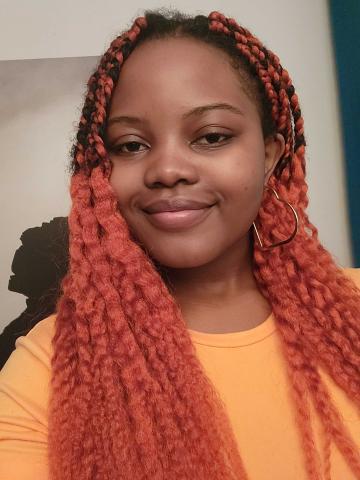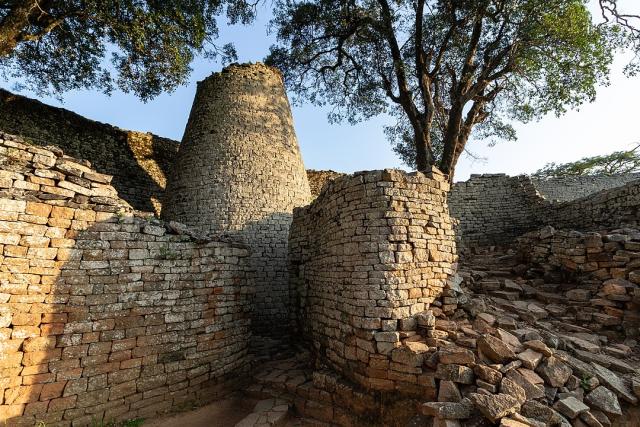Acting loudly just as my other White peers meant I was being too much or too “Black.”

Learning
In 2014 I realized l was Black. To many this may sound strange as l was 10 years old at the time and this should have been a fact l knew about myself. However, I had no idea. The year 2014 was the one in which my family and l immigrated to Canada from Zimbabwe, our home, where all l knew was that I was African and was not categorized and valued based on a specific race. Once in Canada, living in a small, predominantly White community, it did not take long to realize that the way in which a person was treated differed based on their skin tone, and that people already had preconceived opinions about me before I even spoke.
Growing up in a White-dominated society, being Black meant I had to conduct myself “properly” at every event, at church, at school, and even apologize for mistakes that were not mine, as any extreme excitement or acting loudly just as my other White peers meant I was being too much or too “Black.”
This also meant smiling and disregarding any racism that ranged from microaggressions about how tan someone was, especially considering they were so close to my skin tone (they never were), how bouncy and rough my afro felt under someone’s uninvited fingers, to classmates using the n word without understanding the implications and meaning behind it. These were just experiences that came along with being Black, I thought; all these people could not be all wrong.
It was during Black History Month I learned that these experiences were beyond unacceptable, and although Black people did/do go through these experiences, it does not warrant or justify the perpetrators and enablers of racist behaviour. To a degree, I recognize that the children I grew up with only knew as much as they were taught. It was this ignorance that led them to making insensitive and racist comments. Although having this understanding does not remedy their actions, it is evident that the subject of racism and marginalization is not a priority in social discussions.

Not only during Black History Month but also every month, it is time to reflect on the struggles Black people have faced and are still facing to this day, the strength our ancestors had to endure enslavement and colonialism, and the implications that these actions had and have, as we see systematic racism and intergenerational trauma within Black and African communities. It is also time to acknowledge the achievements that have been accomplished by historical figures that are often forgotten or left out of history books, and the achievements to come from all the beautiful, bright Black and African individuals everywhere in the world.
I am now older and seek to understand Black culture and my Zimbabwean culture beyond how the world decides to label and stereotype me. As an African Black woman, I realize that l have my own ignorance about my people because of the environment I grew up in. I have to reconcile with who I pretended to be when I was younger and trying to fit in, and who I am now, a person who is proud of being African and Black, as this is part of my identity and is the source of my courage and confidence. My educational journey is just beginning, and I can only hope it expands beyond what I am capable of imagining.
Faith Reflection
Prayer
Loving Creator, thank you for all that you created and what you continue to create. Please help me appreciate the different things about myself that are scrutinized by the world and deemed unworthy. Help me recognize the beauty and the wonder in what makes me different. Thank you for all the wonderful people I meet in my life, and please help me spread love, knowledge, and kindness into the world. Amen.
Living It Out
Active Engagement
Educate yourself: Learn about Indigenous and racialized histories. This can be written or oral history by those who are marginalized. However, be conscious that it is not the job of racialized and Indigenous individuals to have to educate you about racism, therefore make sure those teaching you are willing to do so.
Acknowledge: Listen to the stories of racialized and Indigenous family, friends, colleagues, etc. Although it might be reflexive to try to “solve problems,” the first and biggest step is to listen to what those around you have experienced and are experiencing. By listening to one another we are also able to reflect on our own privileges and how that can lead to conscious and unconscious biases, in this way we are best equipped to address these biases.
Read, watch, or listen: Read a book, watch a documentary, or listen to music that is written or directed by racialized or Indigenous authors and artists.
—Inzwirashe Munikwa (she/her) is from Zimbabwe and has been living in Canada for eight years. She is currently cohabiting between Hamilton, Ontario, and Dieppe, New Brunswick. She is 19 years old and a second-year student at McMaster University, where she is studying political science.
A version of this article originally appeared as a blog for Black History Month 2023.